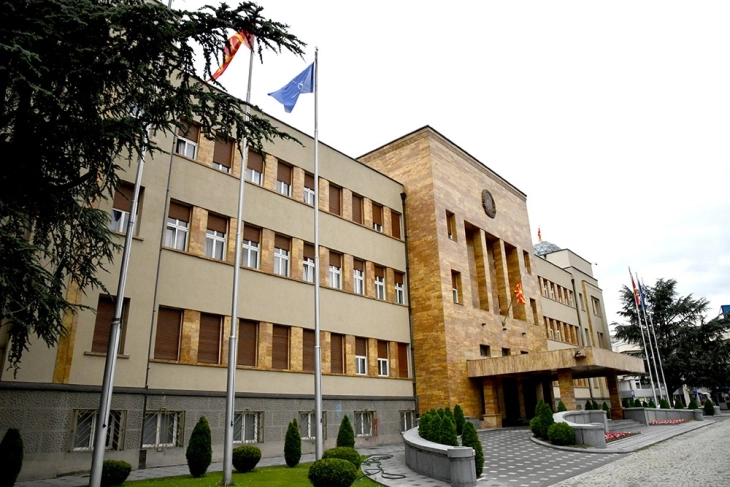Parliament to review EU-flagged bills on Corridors 8 and 10d
- Under a fast-track procedure, Parliament is set to examine the need of passing several bills on the construction of Corridors 8 and 10d during its session Wednesday.
- Post By Magdalena Reed
- 09:20, 10 May, 2023

Skopje, 10 May 2023 (MIA) — Under a fast-track procedure, Parliament is set to examine the need of passing several bills on the construction of Corridors 8 and 10d during its session Wednesday.
Lawmakers are to review draft amendments to the Law on Determining Public Interest and nominating a strategic partner for the Corridor 8 infrastructure construction project (on highway sections Tetovo – Gostivar – Bukojchani and Trebenishta – Struga – Kjafasan) and Corridor 10d (on highway section Prilep – Bitola).
The 115th parliamentary session's agenda also includes proposed changes to the Law on Spatial and Urban Planning, the Law on Construction, the Law on Expropriation, and the Labor Relations Law, all of them EU-flagged to accelerate their adoption.
In line with the EU-flag procedure, the government-proposed bills will be reviewed by the Committee on European Affairs.
According to Corridors 8 and 10d construction project coordinator and First Deputy Prime Minister and Minister of Political System and Inter-Community Relations Artan Grubi at a recent news conference, the government had initially proposed updates to eight laws.
However, since the opposition blocked the move, the government was now EU-flagging a package of five bills, Grubi told the press.
The EU Delegation in Skopje responded to his announcement pointing out that using the EU flag on the bills was not justified as it had nothing to do with aligning the national legislation with the EU acquis, the primary reason for the fast-track procedure.
Recalling several European Commission Reports on North Macedonia, the EU Delegation said the use of the EU flag procedure needed to be limited and used only to advance European reforms. It should not be used to shorten public consultations or to solve procedural difficulties in the legislature, their statement said.
The opposition also reacted to the announcement, threatening to press criminal charges and block the proceedings of Parliament by submitting thousands of draft amendments.
The ruling party said it expected understanding from the EU, stressing that the construction project was related to an important European corridor.
Deputy Prime Minister for European Affairs Bojan Marichikj said the government was in regular communication with EU officials and had explained the decision.
He said the EU-flagging the five bills related to Corridors 8 and 10d was politically justified to achieve the goal of completing the Trans-European Transport Network in North Macedonia. Levica kept blocking Parliament, he said, so the bills were now being fast-tracked to sidestep their "illegitimate blockade."
"We should come out and say it: The decision was made to circumvent the illegitimate blockade by Levica, a pro-Russian party, an anti-NATO party, an anti-EU party that will do anything to prevent the [construction of] corridors within the trans-European networks and this project done by an American company.
"We believe theirs is an illegitimate blockade and we want to circumvent it in a legitimate way, using an instrument at our disposal," Marichikj said.
He added that the government was aware that the proposed amendments were not aimed at aligning the country's laws with the European acquis. Nonetheless, he said, Corridor 8 should become part of the Trans-European Transport Network on May 16.
But unions, also, protested the move. The Federation of Trade Unions of Macedonia, addressing a public letter to EU Ambassador David Geer, requested that a clear message be sent to the government and MPs not to abuse the EU flag for adopting laws that, according to them, violated labor rights.
The unionists said the move was "not European" and highlighted that the European Trade Union Confederation, the International Trade Union Confederation, the European Federation of Building and Woodworkers, and the International Building Organization, numbering over 300 million members, had also condemned the government's decision to introduce a 60-hour work week.
The unionists said the government was introducing working hours of 137 years ago, letting workers be inhumanely exploited for 72 hours a week, which was jeaopardizing workers' health and safety. mr/







